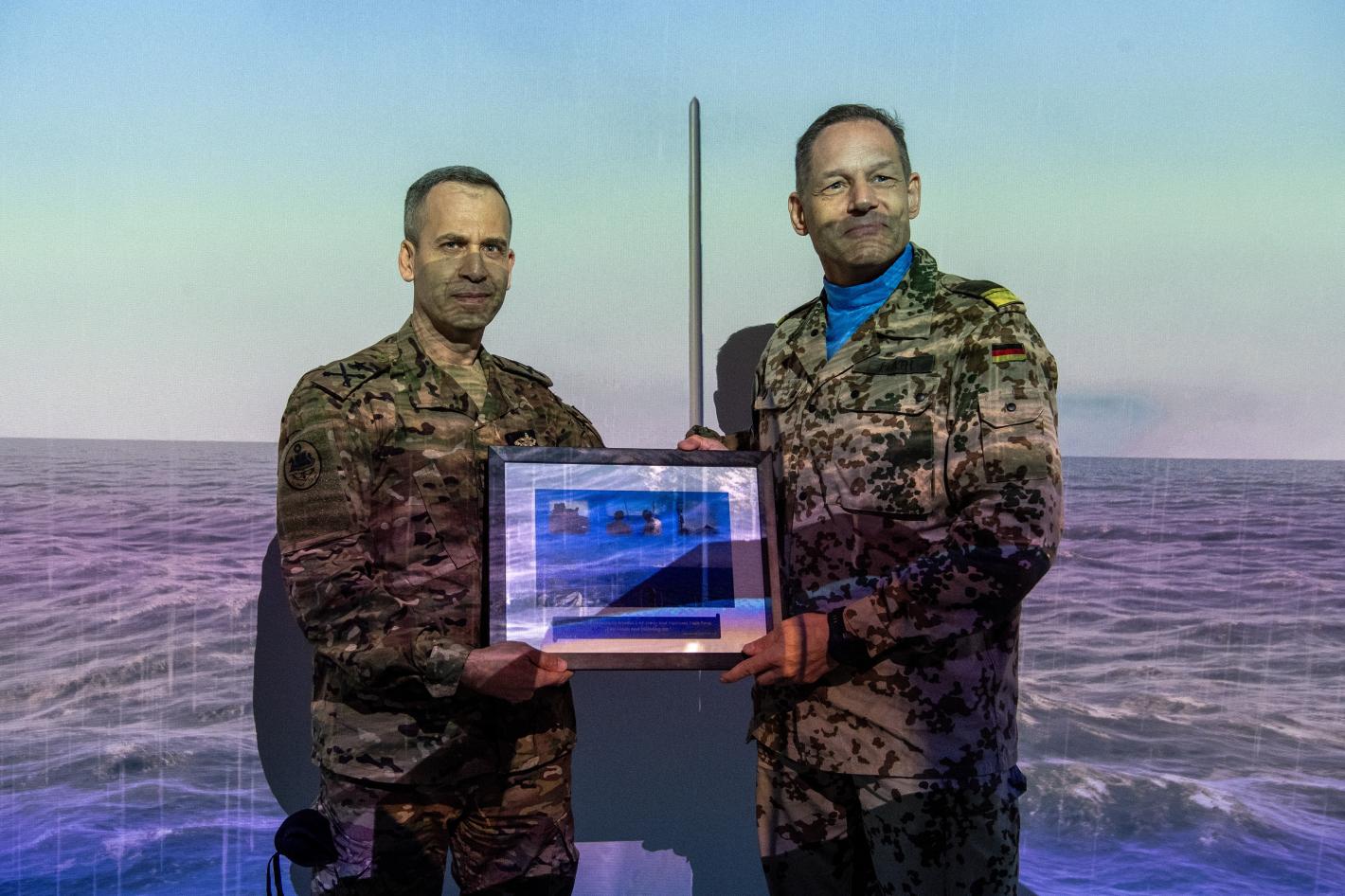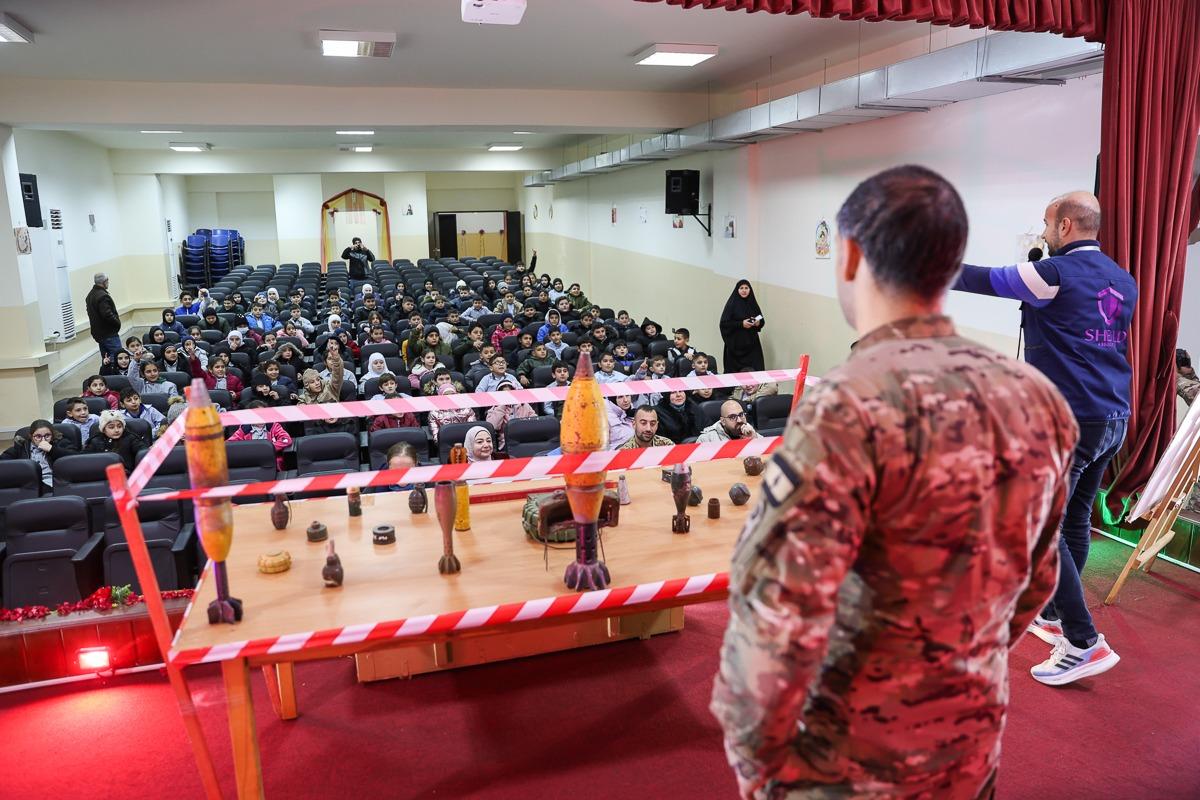A set of colourfully painted tires stood out at the exhibition crowning the recycled art workshop held at the Tyre Public Intermediate School for Girls. Anyone who visits the school should expect to see painted tires across its playground.
On 10 April, Tyre Public Intermediate School for Girls concluded the recycled art workshop held between 28 February and 21 March at its premises in an exhibition displaying the various artefacts prepared by the students.
The workshop, funded by the Brazilian Maritime Task Force (MTF) and facilitated by UNIFIL Civil Affairs, targeted several classes. The older students enjoyed painting tires, some of which were used as sorting waste baskets and the remaining as ornamental containers for flowerbeds.
As the Lebanese-Brazilian recycle art specialist Katia Awar explained, baskets were coloured in different colours, each representing a different type of waste: yellow for aluminium, red for plastic, green for glass, blue for papers. A group of students was tasked to paint the tires in brown. These are meant to be for organic waste, she added.
"The workshop was very useful," the school principal, Ms Iffat Bazzi said. The most interesting aspect was colouring these tires and using them to decorate, either as flowerbed containers or sorted garbage containers. They were remarkable and new for the children. So, instead of burning the tires and polluting the atmosphere, they can be useful to decorate different locations, she noted.
"We are very happy today, because this project today was carried out by the students, in cooperation with UNIFIL Brazilian MTF and Civil Affairs," UNIFIL Chief of Civil Affairs, Albagir Adam, pointed out.
"It has achieved three key goals: teaching future generations how to preserve the environment, being creative and making art out of waste and it was an example of cooperation, not just within the UN, but with the local community," Adam added. "No peace can be made without an interaction with the community and no interaction can happen without cooperation," he emphasized.
UNIFIL Maritime Task Force Commander, Rear Admiral Walter Eduardo Bombarda, dubbed the project as "very important because we have to take care of our planet and the best people to do that are the children. They are our future. This is just a seed that will grow up and be very fruitful in the future."






